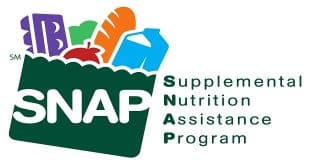Washington, D.C. – U.S. Senator Joe Donnelly today helped the Senate pass a bipartisan legislative package that he negotiated, co-wrote, and helped introduce last November with a number of colleagues. The Economic Growth, Regulatory Relief, and Consumer Protection Act passed the Senate on a 67-31 vote and would reduce regulatory burdens on community banks and credit unions — including for the 103 community banks and 154 credit unions in Indiana — as well as provide new protections to consumers. The bill previously passed the Senate Banking Committee in December with strong bipartisan support.
Donnelly, a member of the Banking Committee, said, “This legislative package is an example of what we can achieve by working together and shows Democrats and Republicans can break the gridlock. I’m proud my bill passed the Senate, because it would provide regulatory relief for community banks and credit unions in Indiana to make it easier for Hoosier families to get a mortgage and for small businesses to expand. And it includes a number of new consumer protections related to student loan borrowers, free credit monitoring for servicemembers, free credit freezes for all Americans, and protections for veterans from VA billing delays and predatory mortgage lending. I look forward to the passage of my bill in the House, so that it can head to the president’s desk.”
Last week, Donnelly spoke on the Senate floor about the legislative package. To see his remarks, click here.
Donnelly helped write and voted for the Dodd–Frank Wall Street Reform and Consumer Protection Act when he was a member of the U.S. House of Representatives and continues to support the important reforms included in the law. Donnelly’s bill maintains the key elements of Dodd-Frank to ensure the safety and soundness of our financial system.
This bipartisan regulatory relief package is carefully written to provide needed regulatory relief to Main Street community banks and credit unions, which have been inadvertently burdened by rules and regulations intended to hold Wall Street accountable. This package would promote economic growth by making commonsense reforms to increase mortgage and small business lending, while protecting consumers. Federal banking regulators have reported that the number of small business loans is down 41 percent since 2008.
The bipartisan Economic Growth, Regulatory Relief, and Consumer Protection Act has broad support from organizations in Indiana and across the country:
- Indiana Chamber of Commerce,
- Indiana Credit Union League,
- Indiana Bankers Association,
- Indiana Mortgage Bankers Association,
- Indiana Association of Realtors,
- Indiana Manufactured Housing Association-Recreational Vehicle Indiana Council (IMHA-RVIC),
- Indiana Builders Association
- U.S. Chamber of Commerce,
- Credit Union National Association,
- National Association of Federally-Insured Credit Unions,
- Independent Community Bankers of America,
- American Bankers Association,
- Mortgage Bankers Association,
- Consumer Bankers Association,
- Mid-Size Bank Coalition of America,
- National Association of Home Builders,
- National Association of REALTORS,
- Third Way,
- National Federation of Independent Business, and
- Bipartisan Policy Center.
The legislative package has also received positive comments from respected experts such as former Federal Reserve Chair Janet Yellen, new Federal Reserve Chairman Jerome Powell, and former Federal Reserve Chair Paul Volcker, among others.
Donnelly-led and Donnelly-supported measures in the package that would benefit Hoosiers:
- Community Banks and Credit Unions: There are a number of provisions related to community banks and credit unions that would increase their ability to extend credit to Hoosier small businesses and families, while maintaining important consumer protections. Donnelly-authored provisions, among others, include the “Qualified Mortgage” changes to allow more mortgage lending, and longer exam cycles for highly-rated community banks. These provisions would allow small financial institutions to focus on traditional banking to help more families obtain mortgages and small business loans.
- Free Credit Freezes and Year-long Fraud Alerts in Response to Equifax Breach: Consumers would be able to freeze and unfreeze their credit in a timely manner, free of charge, and set year-long fraud alerts. The Federal Trade Commission and the major credit bureaus would be required to set up webpages where consumers could easily freeze their credit, set a fraud alert, and opt-out of pre-approved credit offers. Donnelly pursued these changes to protect consumers after the massive Equifax data breach that may have compromised the personal information of approximately 145 million Americans.
- Protecting Veterans Credit: This provision, based off of Donnelly’s bipartisan Protecting Veterans Credit Act, would protect the credit ratings of veterans wrongly penalized by medical bill payment delays by the Department of Veterans Affairs (VA).
- Protecting Veterans from Predatory Home Lending: This provision would protect veterans from predatory refinancing of their VA home loans. It is based on the bipartisan Protecting Veterans from Predatory Lending Act that Donnelly helped introduce earlier this year.
- Protecting Servicemembers: This legislation includes a provision that would provide free credit monitoring for all active-duty servicemembers.
- Student Loans: This provision discharges co-signers (e.g. parents) from student loan debt upon the death or bankruptcy of the student borrower. And, another Donnelly-authored provision, based on previously introduced legislation, would require Treasury’s Financial Literacy Commission to develop best practices for colleges to assist students making financial decisions related to borrowing.
- Manufactured Housing: This provision, based on Donnelly’s bipartisan Preserving Access to Manufactured Housing Act, would ensure consumers can receive general financing information from retailers in order to purchase affordable homes.
- Lead Remediation: A Donnelly-authored provision would require HUD to report on its lead-based paint hazard prevention and abatement policies, best practices, and enforcement to better protect the health and safety of children. Another provision would allow existing Treasury Hardest Hit funds to be used for lead and asbestos remediation.






